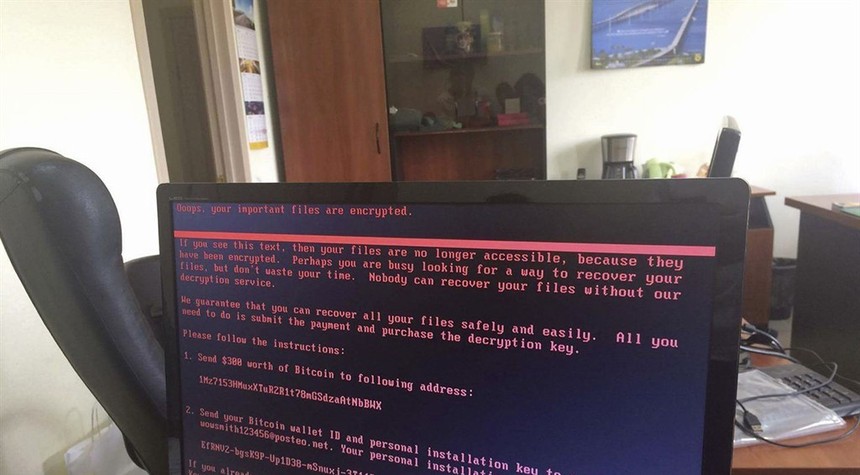As Russia creeps closer and closer to a very physical assault on Ukraine, the country was hit with the largest cyberattack it has ever seen, targeting banks and governments sites.
The DDoS (distributed denial-of-service) attack has been happening since Tuesday and continued on through Wednesday according to Bloomberg. Experts say that the targets have been websites belonging to the Defense Ministry and a site called “Dia” which allows citizens to access digital versions of their passports and Covid vaccination certificates. Cash machine networks and mobile banking services were also attacked.
DDoS attacks consist of directing a network of hacked computers to visit a single site simultaneously, overwhelming the site and causing it to malfunction.
One Ukraine official believes this was intended to throw the country into disorganization and panic.
“This attack was unprecedented, it was prepared well in advance, and its key goal was destabilization, sowing panic and creating chaos in our country,” said Mykhailo Fedorov, Ukraine’s minister of digital transformation.
Viktor Zhora, deputy head of State Service for Special Communication and Information Protection believes that the scope of the attack signals it came from a country with resources, and while he didn’t outwardly say it was Russia, evidence suggests Russian intelligence has been responsible for such attacks in the past.
Interestingly, no money was stolen from the banking hack, leading officials like Deputy Secretary of the National Security Council Serhii Demedyuk to conclude that the attack was “purely psychological.” Bloomberg, however, noted that Ukrainians seem used to interruptions in online banking services:
In 2015, a cyberattack cut electricity to 200,000 customers, while another a year later temporarily knocked out a power station in northern Kyiv. Those attacks were carried out with involvement from Russia’s GRU intelligence agency, according to charges the U.S. Department of Justice unsealed in 2020.
“DDoS attacks happen every day,” said director of internet analysis at Kentik Inc. Doug Madory. “Maybe the only thing interesting about yesterday’s attacks was the context that they occurred in.”
Madory signaled that disrupting the Ukrainian army’s payments could be a possible alternative to armed conflict.
“If the Ukraine-Russia conflict just consists of DDoS attacks against banks and the website of the UA army, that’s probably the best-case scenario as compared to armed conflict.”
Moscow has, so far, denied that they were behind the cyberattack on Ukraine, but so far a lot of clues point to this being the case.
Russian troops recently made way onto Ukrainian territory, a move Biden and the administration is calling a “minor incursion.” To be sure, the invasion is underway and war is rearing back a bald fist to knock on Ukraine’s door.

